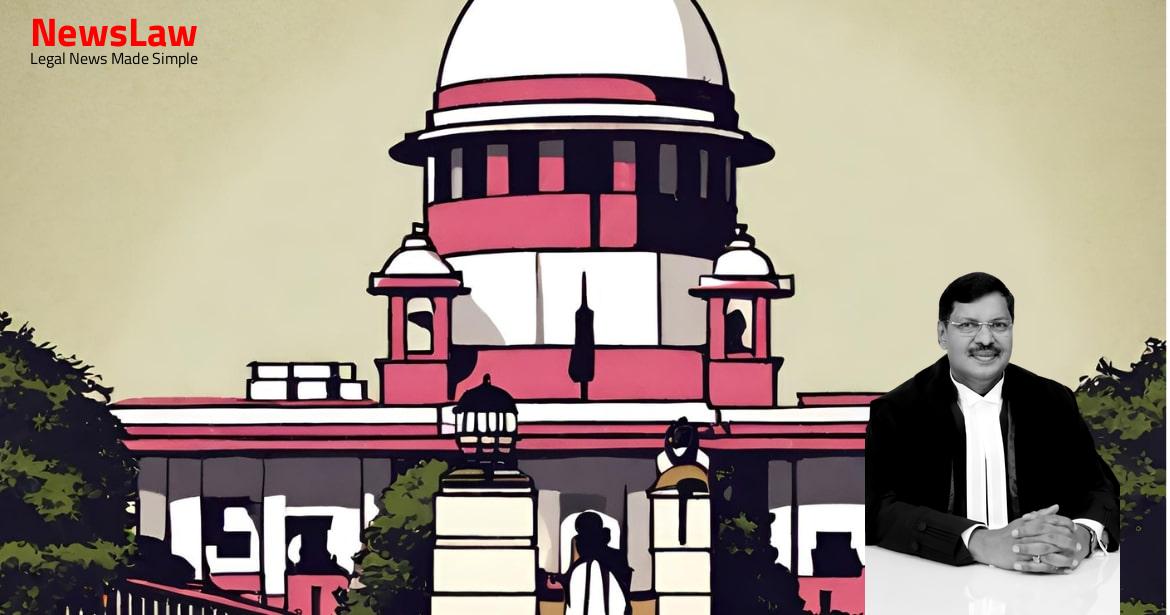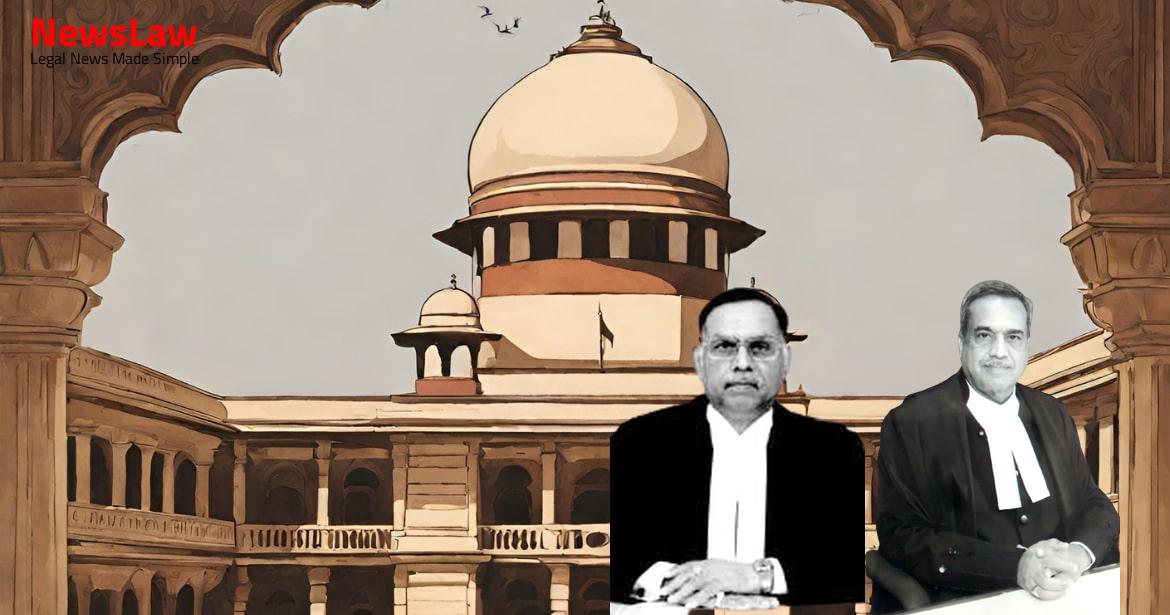The legal analysis by the High Court in a recent case sheds light on the process of FIR registration and investigation in criminal cases. The Court’s examination of the matter emphasizes the nuanced approach required to ensure fair and thorough investigations, highlighting the role of the Magistrate in overseeing such processes. It reinforces the principle that civil disputes should not be transformed into criminal offenses, underlining the importance of proper legal procedures in addressing complaints and ensuring justice.
Facts
- The impugned order dated 06.01.2010 directs the Inspector of Police to register a case based on a complaint dated 18.09.2008.
- The order instructs to file a First Information Report after investigation.
- The order was passed by the Madurai Bench of Madras High Court in Criminal O.P. (MD) No. 11620 of 2009.
- The first respondent in this case is S. Janaki.
- Inspector of Police registered an FIR against two appellants and three others despite the stay on the impugned judgment.
- It was directed that the police should not proceed with the investigation until the decision of the present S.L.P.
- The appellants claimed that the first respondent was a trustee in ADS Educational Trust founded in 1985.
- Mr. M. Subramaniam and Mr. R.V. Prasanna Venkatesan filed a petition under Article 136 of the Constitution of India as they were aggrieved parties.
- A copy of the order dated 18.02.2019 from Madras High Court was produced during the hearing, related to a previous Criminal O.P. filed by appellants against the respondents.
- If the present S.L.P. is dismissed, the police will proceed with the investigation in Crime No 7 of 2010.
- The petition was partly allowed with the direction to treat the case registered as Crime No. 7 of 2010 as closed.
- Permission to file Special Leave Petition was granted on 12.03.2010 and notice was issued.
Also Read: Analysis of Agency Relationships in Taxation
Analysis
- In Sakiri Vasu case, it was highlighted that High Courts should not be flooded with writ petitions seeking FIR registration or proper investigation.
- Complainants are advised to first approach the Magistrate under Section 156(3) CrPC for redressal.
- The Magistrate has the authority to order investigation, recommend a change of investigating officer, and monitor the investigation.
- Magistrates can direct police to register FIRs and ensure proper investigations under Section 156(3) CrPC.
- Filing an application under Section 156(3) allows for proper investigation supervision by the Magistrate.
- Courts have affirmed the broad scope of powers under Section 156(3) CrPC for Magistrates to ensure thorough investigations.
- The duty of registering an FIR falls on the police station officer upon direction from the Magistrate for investigation under Section 156(3) CrPC.
- Section 156(3) empowers a Magistrate under Section 190 to order an investigation as mentioned in Section 156(1).
- The Magistrate can order a proper investigation if the police fails to investigate a case or does it unsatisfactorily.
- The Magistrate has the authority to take suitable steps and pass necessary orders to ensure a proper investigation.
- An individual cannot directly approach the High Court under Article 226 of the Constitution of India if their FIR has not been registered by the police or if proper investigation is not being conducted.
- The appropriate remedy for an aggrieved person in such situations is to approach the Magistrate concerned under Section 156(3) of the Criminal Procedure Code.
- When a statute grants a particular power, it also implicitly includes the authority to exercise all necessary actions or controls essential for its effective implementation.
- This principle was upheld in the case of Sudhir Bhaskarrao Tambe v. Hemant Yashwant Dhage and Others.
- Order will not impede first respondent from filing documents with the police based on the complaint dated 18.09.2008.
- If police find a criminal offense, they can register an FIR.
- First respondent can approach the court if necessary.
- Appellants and others can take steps to protect their interests.
- Civil disputes should not be turned into criminal offenses.
- Mere pendency of civil proceedings should not prevent the registration and investigation of an FIR for a criminal offense.
- Parties can present material to the Magistrate.
- The Magistrate should not be influenced by any observations in the High Court order.
- Surprised and concerned about registration of FIR despite the stay order by the Court.
- Appeal allowed, setting aside the direction for FIR registration and police investigation.
Also Read: Land Auction Dispute Resolution
Decision
- The Court clarifies that no opinion has been given on the merits of the complaint
- The Court has not determined if the complaint discloses a criminal offence
- The present appeal is partially allowed
Also Read: Analysis of Bail Conditions in Criminal Appeal No. INSC 48/2024
Case Title: M. SUBRAMANIAM Vs. S. JANAKI (2020 INSC 323)
Case Number: Crl.A. No.-000102-000102 / 2011



